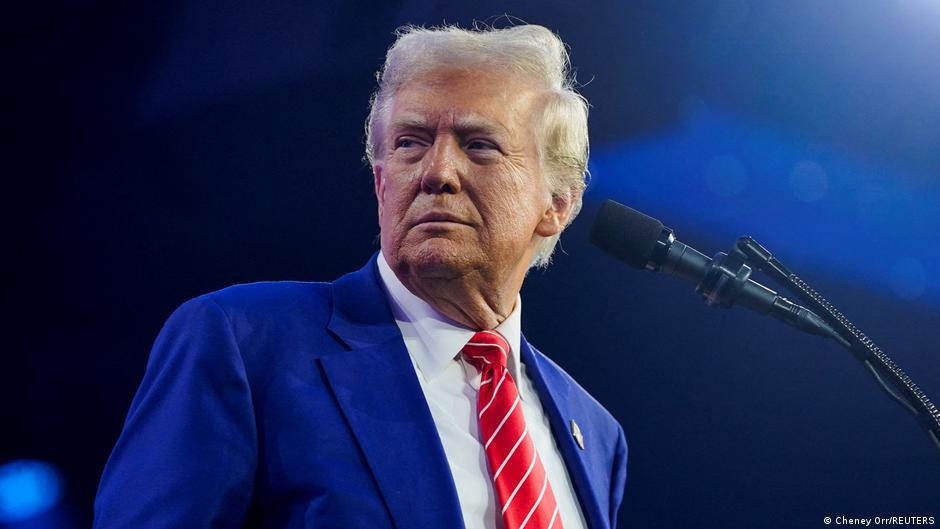Donald Trump‘s first days in office will be symbolically important and his actions will likely be a mixed bag of domestic and international policies. He will want to show voters that he means business while demonstrating America’s power abroad.
Putting presidential executive orders to use
To get things rolling quickly, Trump will depend on presidential executive orders, which are directives issued by the president. These orders bypass US Congress and can cover a range of issues like national security, foreign policy, and regulatory matters. A pile of them is expected to be ready for him to sign on January 20.
In a TV interview on “Meet the Press” on December 8, Trump confirmed he would sign “a lot” of executive orders on Day 1 relating to the economy, energy, and most importantly the Mexican border.
However, executive orders are not an all-encompassing power and can only be used to direct the actions of the executive branch, says Dan Mallinson, an associate professor of public policy and administration at Penn State Harrisburg in Pennsylvania.
These powers can still “be wide-ranging, including his promise to close the border,” he told DW, “but other orders just start the slow federal rulemaking process, which can take years.”
Immigration and mass deportations
Since arriving on the national stage, Trump has been fixated on the Mexican border and the people crossing it to enter the US. In his first term in office, he wanted to complete a wall between the two countries and have Mexico pay for it.
Four years later, stopping irregular migration by securing the country’s borders was one of the main issues that got Trump reelected. He is likely to revive a “Remain in Mexico” policy requiring asylum seekers to wait in Mexico while claims are processed.
For those already in the country illegally, he has called for the biggest mass deportation in the country’s history, focusing first on criminals before turning to other undocumented immigrants.
Despite this plan — and any executive orders to expedite deportations — making this happen would require time and the support of local and state agencies. It would also face legal challenges.
In addition to fighting irregular migration, Trump is likely to again slow legal migration including making work permits, green cards, and visas harder and more expensive to get. This could impact skilled workers and prospective university students.
Trump also confirmed on “Meet the Press” that ending birthright citizenship was a Day 1 priority, if possible, through executive action. “We’re going to end that because it’s ridiculous,” he said. This could be difficult since the principle that anyone born on US soil is an American citizen is anchored in the Constitution.
The threat of tariffs on imported goods
Trade is another area that gets a lot of attention from Trump. Recently, he suggested a 10% blanket tariff for everything entering the US. Mexico, Canada and China, the country’s biggest trading partners, would be hit with even higher duties.
“It is not yet clear to what extent that will happen or if the threat of tariffs is being used to push certain countries to trade negotiations,” said Mallinson. However, based on his record, he thinks Trump will introduce at least some new tariffs.
While the president has the authority to impose tariffs on specific categories of imports, issuing blanket tariffs on all goods would be more complex. Such a move would cause chaos and be challenged in court.
Additionally, tariffs could add to domestic problems. “Anger over inflation helped Trump win the presidency, but he could lose public favor quickly if his economic policy raises prices or hobbles the economy,” said Mallinson.
Leaving the Paris Climate Accords, again
The environment is less important to US voters than the economy or migration, nonetheless, Trump has it in his crosshair.
During his first term as president, he withdrew the US from the Paris Agreement, which is meant to cut carbon emissions to fight climate change. Joe Biden reversed that decision and rejoined the treaty on his first day in office.
Now, repeating the phrase “drill baby, drill” Trump has promised to expand the production of crude oil. As he focuses on fracking and fossil fuels, it should come as no surprise if he again withdraws from the climate agreement as one of his first official acts.
Trump has shown disregard for renewable wind energy production and electric vehicles. This skepticism could lead to other executive orders rolling back environmental protections and slowing the pace of renewable energy projects.
Pardons for convicted Capitol rioters
The presidential pardon, a tool that gives the president the authority to forgive people convicted of federal crimes or end a prison sentence, could also come into use on Day 1.
Trump has made it clear he may pardon most of the hundreds of people convicted of storming the US Capitol building on January 6, 2021.
“Most likely, I’ll do it very quickly,” he confirmed on “Meet the Press,” saying it would be a first-day priority, even if they pleaded guilty to a crime like assaulting police officers, “because they had no choice” but to plead guilty.
Whether Trump will try to pardon himself for any federal crimes is an open question.
Ultimately, only the Trump team knows what is lined up for his first days in office. But he will need to act fast since midterm elections in two years could end the Republican majority in the Senate or House of Representatives.
“Presidents come into office with a sense of mandate and political capital that rapidly diminishes,” concluded Mallinson. “He cannot run again in 2028, so anything he wants to accomplish must happen in one term.”
Edited by: Rob Mudge
What will Trump do first when he becomes president? – DW – 01/14/2025


